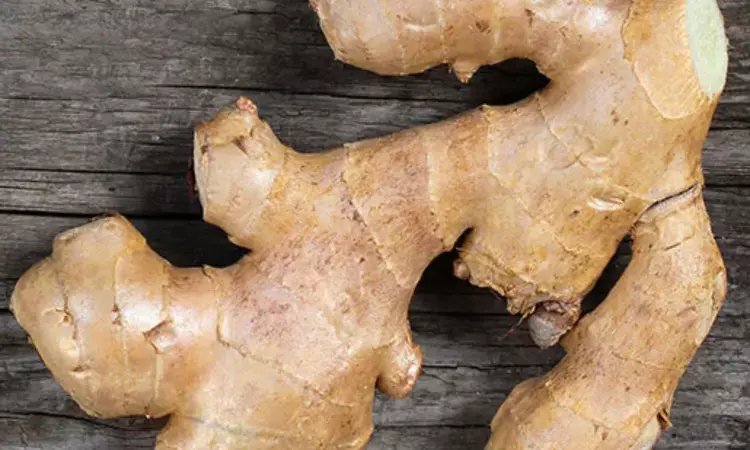- Home
- Medical news & Guidelines
- Anesthesiology
- Cardiology and CTVS
- Critical Care
- Dentistry
- Dermatology
- Diabetes and Endocrinology
- ENT
- Gastroenterology
- Medicine
- Nephrology
- Neurology
- Obstretics-Gynaecology
- Oncology
- Ophthalmology
- Orthopaedics
- Pediatrics-Neonatology
- Psychiatry
- Pulmonology
- Radiology
- Surgery
- Urology
- Laboratory Medicine
- Diet
- Nursing
- Paramedical
- Physiotherapy
- Health news
- Fact Check
- Bone Health Fact Check
- Brain Health Fact Check
- Cancer Related Fact Check
- Child Care Fact Check
- Dental and oral health fact check
- Diabetes and metabolic health fact check
- Diet and Nutrition Fact Check
- Eye and ENT Care Fact Check
- Fitness fact check
- Gut health fact check
- Heart health fact check
- Kidney health fact check
- Medical education fact check
- Men's health fact check
- Respiratory fact check
- Skin and hair care fact check
- Vaccine and Immunization fact check
- Women's health fact check
- AYUSH
- State News
- Andaman and Nicobar Islands
- Andhra Pradesh
- Arunachal Pradesh
- Assam
- Bihar
- Chandigarh
- Chattisgarh
- Dadra and Nagar Haveli
- Daman and Diu
- Delhi
- Goa
- Gujarat
- Haryana
- Himachal Pradesh
- Jammu & Kashmir
- Jharkhand
- Karnataka
- Kerala
- Ladakh
- Lakshadweep
- Madhya Pradesh
- Maharashtra
- Manipur
- Meghalaya
- Mizoram
- Nagaland
- Odisha
- Puducherry
- Punjab
- Rajasthan
- Sikkim
- Tamil Nadu
- Telangana
- Tripura
- Uttar Pradesh
- Uttrakhand
- West Bengal
- Medical Education
- Industry
Ginger improves glycemic response in nondiabetic adults

Portugal: Ginger extract may be effective against hyperglycemic status in nondiabetic people, a recent study published in the MDPI journal Foods has suggested.
The study showed a beneficial effect of ginger on glucose homeostasis under acute conditions and encouraged the use of ginger extract as a promising source of natural antioxidants.
"Our findings indicate that ingestion of the aqueous extract (0.2 g/100 mL) of ginger (Zingiber officinale Roscoe) in nondiabetic subjects reduces blood glucose and postprandial maximum glucose level variation," the researchers wrote in their study. "The ginger extract also possesses a substantial antioxidant activity through free radical scavenging activity."
The postprandial blood glucose concentration has been shown as an essential factor in glucose homeostasis control, which seems to be effective in preventing the progression and development of long-term diabetes complications. Epidemiological data has revealed an association between cardiovascular and all-cause mortality and postprandial hyperglycemia status in nondiabetic patients.
Evidence has also shown an overproduction of oxygen-free radicals during hyperglycemic conditions leading to cellular damage and oxidative stress. This oxidative stress has been correlated with the development of diabetes complications.
Ginger is a traditional herb that belongs to the Zingiberaceae family and is shown to have beneficial effects on human health. Ginger has been proposed to possess anti-inflammatory and antioxidant properties. The herb treats vomiting, nausea, osteoarthritis, metabolic syndrome, pain, and obesity.
Against the above background, Alda Diakos and colleagues from Portugal aimed to investigate the effect of aqueous ginger extract on postprandial glucose levels in nondiabetic adults and characterized its antioxidant activity.
The authors reported the following findings:
- Twenty-four nondiabetic participants were randomly assigned to the intervention group (n = 12) and the control group (n = 12). Both groups were administered 200 mL of an oral glucose tolerance test (OGTT), after which participants in the intervention group ingested 100 mL of ginger extract (0.2 g/100 mL).
- Postprandial blood glucose was measured while fasting and after 30, 60, 90, and 120 min.
- The total phenolic, flavonoid and antioxidant activity of ginger extract were quantified. In the intervention group, the total area under the curve for glucose levels decreased significantly, and the maximum glucose concentration was significantly reduced.
- The extract possessed a polyphenolic content of 13.85 mg gallic acid equivalent/L, a flavonoid content of 3.35 mg quercetin equivalent/L, and a high superoxide radical inhibitory capacity (45.73%).
"The present study contributes to the support of the beneficial properties of ginger, indicating that this herb extract may be effective against hyperglycemic status in nondiabetic subjects," the researchers conclude.
Reference:
Diakos, A.; Silva, M.L.; Brito, J.; Moncada, M.; de Mesquita, M.F.; Bernardo, M.A. The Effect of Ginger (Zingiber officinale Roscoe) Aqueous Extract on Postprandial Glycemia in Nondiabetic Adults: A Randomized Controlled Trial. Foods 2023, 12, 1037. https://doi.org/10.3390/foods12051037
Dr Kamal Kant Kohli-MBBS, DTCD- a chest specialist with more than 30 years of practice and a flair for writing clinical articles, Dr Kamal Kant Kohli joined Medical Dialogues as a Chief Editor of Medical News. Besides writing articles, as an editor, he proofreads and verifies all the medical content published on Medical Dialogues including those coming from journals, studies,medical conferences,guidelines etc. Email: drkohli@medicaldialogues.in. Contact no. 011-43720751


